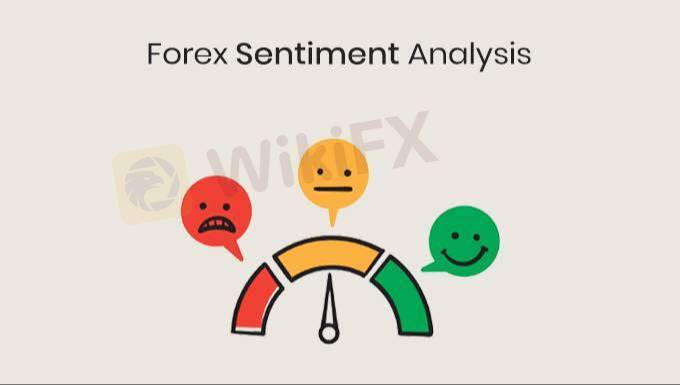
2025-02-16 07:02
IndustryForex Market Sentiment Analysis
#firstdealoftheneeyearastylz
Forex market sentiment analysis refers to the process of analyzing market data and trader behavior to determine the overall sentiment of the market. Here's an overview:
Types of Market Sentiment:
1. Bullish Sentiment: Traders are optimistic and expect prices to rise.
2. Bearish Sentiment: Traders are pessimistic and expect prices to fall.
3. Neutral Sentiment: Traders are uncertain and expect prices to remain stable.
Methods of Market Sentiment Analysis:
1. Technical Analysis: Analyzing charts and patterns to identify trends and sentiment.
2. Fundamental Analysis: Analyzing economic indicators and news events to determine sentiment.
3. Sentiment Indicators: Using indicators such as the Commitment of Traders (CoT) report and sentiment indexes.
4. Social Media and Online Forums: Analyzing trader sentiment on social media and online forums.
Tools for Market Sentiment Analysis:
1. Sentiment Indexes: Such as the DailyFX Sentiment Index.
2. Commitment of Traders (CoT) Report: Released by the CFTC.
3. Social Media Analytics Tools: Such as Hootsuite Insights.
4. Market Data Platforms: Such as MetaTrader and TradingView.
Benefits of Market Sentiment Analysis:
1. Improved Trading Decisions: By understanding market sentiment, traders can make more informed decisions.
2. Risk Management: Sentiment analysis can help traders identify potential risks and adjust their strategies.
3. Market Insight: Sentiment analysis provides valuable insights into market trends and behavior.
Limitations of Market Sentiment Analysis:
1. Subjectivity: Sentiment analysis can be subjective and influenced by personal biases.
2. Noise and False Signals: Sentiment indicators can generate false signals and noise.
3. Complexity: Sentiment analysis can be complex and require specialized knowledge and tools.
By combining market sentiment analysis with other forms of analysis, traders can gain a more comprehensive understanding of the market and make more informed trading decisions.
Like 0

Future800
Broker
Hot content
Industry
Event-A comment a day,Keep rewards worthy up to$27
Industry
Nigeria Event Giveaway-Win₦5000 Mobilephone Credit
Industry
Nigeria Event Giveaway-Win ₦2500 MobilePhoneCredit
Industry
South Africa Event-Come&Win 240ZAR Phone Credit
Industry
Nigeria Event-Discuss Forex&Win2500NGN PhoneCredit
Industry
[Nigeria Event]Discuss&win 2500 Naira Phone Credit
Forum category

Platform

Exhibition

Agent

Recruitment

EA

Industry

Market

Index
Forex Market Sentiment Analysis
 Hong Kong | 2025-02-16 07:02
Hong Kong | 2025-02-16 07:02#firstdealoftheneeyearastylz
Forex market sentiment analysis refers to the process of analyzing market data and trader behavior to determine the overall sentiment of the market. Here's an overview:
Types of Market Sentiment:
1. Bullish Sentiment: Traders are optimistic and expect prices to rise.
2. Bearish Sentiment: Traders are pessimistic and expect prices to fall.
3. Neutral Sentiment: Traders are uncertain and expect prices to remain stable.
Methods of Market Sentiment Analysis:
1. Technical Analysis: Analyzing charts and patterns to identify trends and sentiment.
2. Fundamental Analysis: Analyzing economic indicators and news events to determine sentiment.
3. Sentiment Indicators: Using indicators such as the Commitment of Traders (CoT) report and sentiment indexes.
4. Social Media and Online Forums: Analyzing trader sentiment on social media and online forums.
Tools for Market Sentiment Analysis:
1. Sentiment Indexes: Such as the DailyFX Sentiment Index.
2. Commitment of Traders (CoT) Report: Released by the CFTC.
3. Social Media Analytics Tools: Such as Hootsuite Insights.
4. Market Data Platforms: Such as MetaTrader and TradingView.
Benefits of Market Sentiment Analysis:
1. Improved Trading Decisions: By understanding market sentiment, traders can make more informed decisions.
2. Risk Management: Sentiment analysis can help traders identify potential risks and adjust their strategies.
3. Market Insight: Sentiment analysis provides valuable insights into market trends and behavior.
Limitations of Market Sentiment Analysis:
1. Subjectivity: Sentiment analysis can be subjective and influenced by personal biases.
2. Noise and False Signals: Sentiment indicators can generate false signals and noise.
3. Complexity: Sentiment analysis can be complex and require specialized knowledge and tools.
By combining market sentiment analysis with other forms of analysis, traders can gain a more comprehensive understanding of the market and make more informed trading decisions.
Like 0
I want to comment, too
Submit
0Comments

There is no comment yet. Make the first one.

Submit
There is no comment yet. Make the first one.